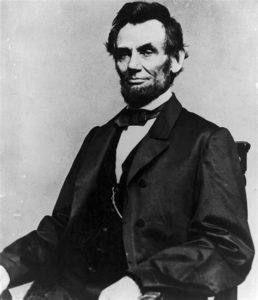“The meek also shall increase their joy in the Lord.” Isaiah 29:19
Meekness is not a momentary decision, but a way of life. It is an intentional daily decision to set our own desires aside and rely on the power of the Holy Spirit within us. Someone has described biblical meekness as “putting the bit in your own mouth and handing the reigns over to God.” It is an humble attention to and acceptance of the will of God.
 Meekness is not making ourselves part of the Doormat Club. J. Upton Dickson was a fun-loving fellow who founded a group for submissive people. It was called the DOORMATS. That stood for “Dependent Organization Of Really Meek And Timid Souls – if there are no objections.” Their motto was: “The meek shall inherit the earth – if that’s okay with everybody.” Their symbol was the yellow traffic light! Although this was a tongue-in-cheek mythical club, it shows the way that many people view meekness.
Meekness is not making ourselves part of the Doormat Club. J. Upton Dickson was a fun-loving fellow who founded a group for submissive people. It was called the DOORMATS. That stood for “Dependent Organization Of Really Meek And Timid Souls – if there are no objections.” Their motto was: “The meek shall inherit the earth – if that’s okay with everybody.” Their symbol was the yellow traffic light! Although this was a tongue-in-cheek mythical club, it shows the way that many people view meekness.
Meekness is often mistaken for weakness, but those two things are much different. Where weakness is a lack of strength, meekness actually a show of great strength under God’s control. Meekness without God might very well be weakness, but in God’s hands it is powerful beyond understanding. Cultures have been often influenced by the meekness of great men and women. Hearts have been changed. Circumstances have been controlled. Pain has been alleviated. Meekness in the eyes of the wise will never be seen as anything less than what it is- it is inner strength that leads to gentleness.
often influenced by the meekness of great men and women. Hearts have been changed. Circumstances have been controlled. Pain has been alleviated. Meekness in the eyes of the wise will never be seen as anything less than what it is- it is inner strength that leads to gentleness.
The strongest man to ever walk this earth was Christ, yet His absolute trust in God resulted in the greatest sacrifice anyone has ever given. Meekness is a balm that heals when revenge cannot. Our flesh will seek our own desires, but the meek will seek the desires of others. Meekness is great faith, great commitment, and great determination to follow in the steps of Christ.
Christ did not weakly go to the cross. His trip to the cross was the most courageous act of all time. But He faced it accepting the will of the Father. We too, are required on a daily basis to live a meek life before God. When God requires sacrifice, meekness trusts completely and gives willingly. When God demands obedience, meekness ignores selfish desires, crucifies personal ambition, and performs joyfully the good will of God. When God demands forgiveness we forego our desire to satisfy our deep desires for vengeance. When we desire to do what would please us, meekness allows us to do what is pleasing to God.
 A young Christian from Africa had the opportunity to attend a Christian college and was being shown around the campus by the college president. When the president asked him where he would like to live, the young man replied, “If there is a room that no one wants, give that room to me.” That touched the president deeply because after years of showing prospective students around campus, that is the first time he had ever heard those words.
A young Christian from Africa had the opportunity to attend a Christian college and was being shown around the campus by the college president. When the president asked him where he would like to live, the young man replied, “If there is a room that no one wants, give that room to me.” That touched the president deeply because after years of showing prospective students around campus, that is the first time he had ever heard those words.  Everyone knows that our treatment of others can be the big bridge between the gospel of Christ and a lost world.
Everyone knows that our treatment of others can be the big bridge between the gospel of Christ and a lost world.
Our heartfelt actions that put others first are powerful examples of who Christ is and what He can do in our lives. How would it effect those who don’t know God to hear from those who do know God things like, “If there is a job that no one wants to do, I’ll do that job,” or “If there’s a kid that no one wants to eat lunch with, I’ll eat with him,’” or “If there’s a parking space that’s further out, I’ll park in that space,” or “If someone needs to stay late to clean-up, I will stay,” or “If there is not enough  room, I can just take the next bus.”
room, I can just take the next bus.”
In essence, we are telling the world without bragging or expecting anything back, “If there’s a sacrifice someone needs to make, I’ll make that sacrifice.” God knows that the joy of the meek will continually increase. Meekness can nourish rather than deplete. The meek can find comfort in personal circumstances that the weak cannot. The meek’s happiness is not derived from fleeting popularity; their fulfillment does not come from public success; their pleasure is not obtained in vengeance or revenge.
 The meek know when to advance and when to step back. The meek will stand strong when they should and not just when it feels good. There’s a scene in the movie Gladiator where the Emperor of Rome, Marcus Aurelius, asks Maximus to be his successor instead of his power-hungry son. When asked if he would accept this great honor, Maximus says, apologetically, “With all my heart, no.”
The meek know when to advance and when to step back. The meek will stand strong when they should and not just when it feels good. There’s a scene in the movie Gladiator where the Emperor of Rome, Marcus Aurelius, asks Maximus to be his successor instead of his power-hungry son. When asked if he would accept this great honor, Maximus says, apologetically, “With all my heart, no.”
“Maximus,” the emperor replies, “that is why it must be you!” Maximus’ humble rejection of power made him the right man for the job.
The greatest leaders are those who do not seek personal power, but seek to  put those around them ahead of them. Some psychologists think that “power poses” can give us confidence and energy. When we stand up tall with our chest out and feet spread it is a show of great strength (think of superman) to those around us. Ironically, one of the most recent well-known poses carried more power than the super hero stance that psychologists talk about.
put those around them ahead of them. Some psychologists think that “power poses” can give us confidence and energy. When we stand up tall with our chest out and feet spread it is a show of great strength (think of superman) to those around us. Ironically, one of the most recent well-known poses carried more power than the super hero stance that psychologists talk about.  Tim Tebow affected more people with a pose on bended knee than anyone could with a puffed out chest. It is not how we stand that sends a message, it is how we live.
Tim Tebow affected more people with a pose on bended knee than anyone could with a puffed out chest. It is not how we stand that sends a message, it is how we live.
Anyone can stand in a way that conveys a picture of power, but only a few can live in a way that illustrates real power. God calls us to “Humble (ourselves), therefore, under God’s mighty hand, that he may lift (us) up in due time” (1 Peter 5:6). Meekness allows us to step aside and to remember that “(we) can do everything through Christ, who gives (us) strength” (Philippians 4:13).
President Lincoln, a strongly spiritual man, was ridiculed quite often for his appearance, but he took it in stride. Once when he heard that an opponent was calling him “two-faced” Lincoln replied, “if I had two faces, would I be wearing this one!” One of his staunchest opponents was Edwin Stanton, who often referred to Lincoln as a gorilla. After Lincoln was elected he selected Stanton as Secretary of War over the protests of many. Lincoln, however, understood Stanton’s brilliant mind and would not allow Stanton’s previous insults to stand in the way of appointing the best man to the job.
who often referred to Lincoln as a gorilla. After Lincoln was elected he selected Stanton as Secretary of War over the protests of many. Lincoln, however, understood Stanton’s brilliant mind and would not allow Stanton’s previous insults to stand in the way of appointing the best man to the job.
Lincoln had a host of “enemies” that he placed in positions of responsibility because they were the men necessary for the times. Lincoln did not let petty grudges keep him from doing what was best for the country. That kind of meekness is why Lincoln is considered one of our greatest presidents.
The meek find their joy in The Lord- their trust of The Lord. As the meek trust God more, the more they have of Him, the more they have of Him, the more they know of Him, the more they know of Him, the more their joy is increased, and the more their joy is increased, the more they understand the difference between weakness and meekness- the more they understand how to be strong but not wrong.
Without Christ we will always be confused about what meekness truly is. Without Christ we will constantly be guessing what to do in any given situation. It is thought by many that meekness robs us of nobility, but I would say that it is the very essence of nobility. Nothing more noble has ever been done than Christ’s humble sacrifice on the cross. Nothing has taken more strength.
God did not say the weak would inherit the earth, but He did make another promise.
I think we all know what that was. Be meek this week.